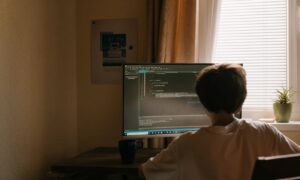Medical Lab Technology (MLT) is becoming one of the most important parts of healthcare. As diagnostic testing becomes more advanced, the need for skilled lab professionals is growing. Whether it’s running blood tests, managing lab instruments, or assisting in disease detection, MLT professionals play a critical role in the diagnosis process. Two common academic paths in this field are BSc MLT and BVoc MLT, and they both offer distinct advantages depending on your goals.
What is BSc MLT?
BSc MLT is a three-year undergraduate program focused on the theoretical foundations and technical skills needed for lab diagnostics. Students learn about pathology, clinical biochemistry, microbiology, and instrument handling. The course combines both classroom teaching with practical lab sessions to ensure complete knowledge. It’s best suited for those aiming for further education like MSc or roles in research and hospital labs.
What is BVoc MLT?
BVoc MLT (Bachelor of Vocation in Medical Lab Technology) tends to be more heavily towards hands-on training and skill-based learning. Spanning three years, it’s designed to be in collaboration with industries to ensure graduates are job-ready. The curriculum includes internships, real-time lab work, and modules tailored to current industry needs. If your aim is to enter the workforce quickly with strong practical skills, this course might suit you better than the more theory-driven BSc route.
Academic vs Skill-Based
The primary difference between both is in the course approach:
- BSc MLT emphasizes academics, theory, and preparing students for research or postgraduate study.
- BVoc MLT is based on applied skills and immediate employability.
Career Opportunities After BSc MLT
Graduates of BSc MLT can study and get opportunities in hospitals, diagnostic centers, research labs, and even biotech industries. Roles such as laboratory technologist, clinical research associate, or pathology assistant are commonly pursued. Many also go on to specialize further by pursuing an MSc in MLT or hospital administration. A BSc degree offers a solid academic ladder to climb, especially for those interested in higher education or managerial roles in lab settings.
Career Paths You Can Pursue with a BVoc MLT Degree
With its skill-based focus, BVoc MLT graduates can seek employment soon after graduation. Graduates often work as lab assistants, phlebotomists, or lab technicians in private and public hospitals. The practical nature of this course also suits individuals looking into joining healthcare NGOs or diagnostic chains.
Salary Trends and Growth Potential
In terms of starting salaries, both degrees offer comparable figures, generally ranging from ₹1.5 to ₹4 lakhs per annum. However, BSc MLT graduates may see better long-term growth, especially if they pursue higher education. BVoc MLT, on the other hand, promises quicker employment but may have less growth unless they do further certifications. Your career growth will ultimately depend on your willingness to learn more and specialize your skills.
Hyderabad, known as the Silicon Valley of India, is also fast emerging as a hub for the healthcare and biotech industries. It has some of the country’s most reputed hospitals, diagnostic labs, and research institutions. If you are considering pursuing this path, enrolling in a BSc MLT course in Hyderabad could give you the right mix of academic grounding and industry exposure.
Choosing between BSc and BVoc in Medical Lab Technology all comes down to your career priorities, whether you aim for academic advancement or wish to start working early. Both courses offer strong foundations in healthcare diagnostics, but understanding your own learning style, financial situation, and professional goals is crucial. Weigh your options carefully before making your decision.





























